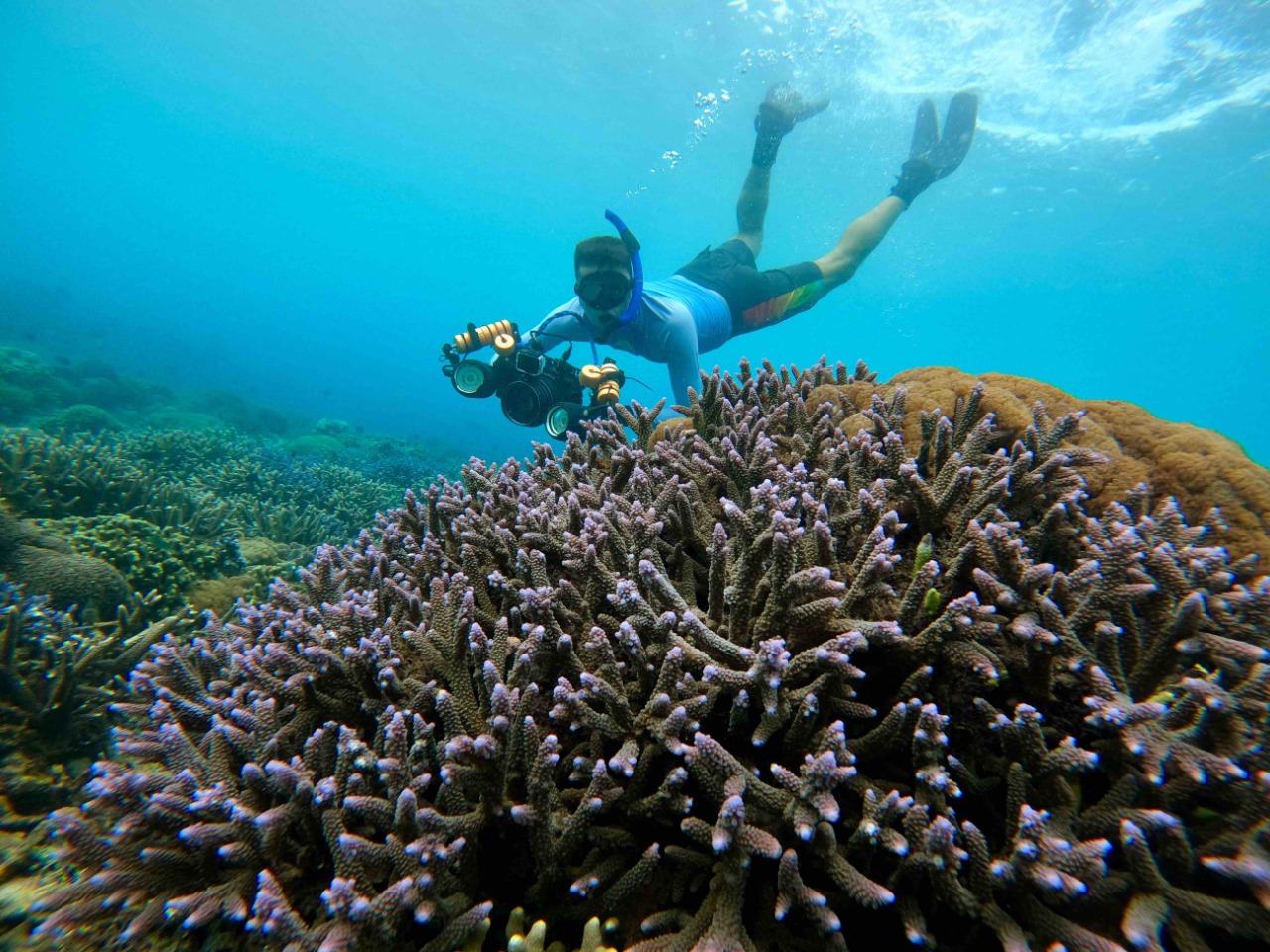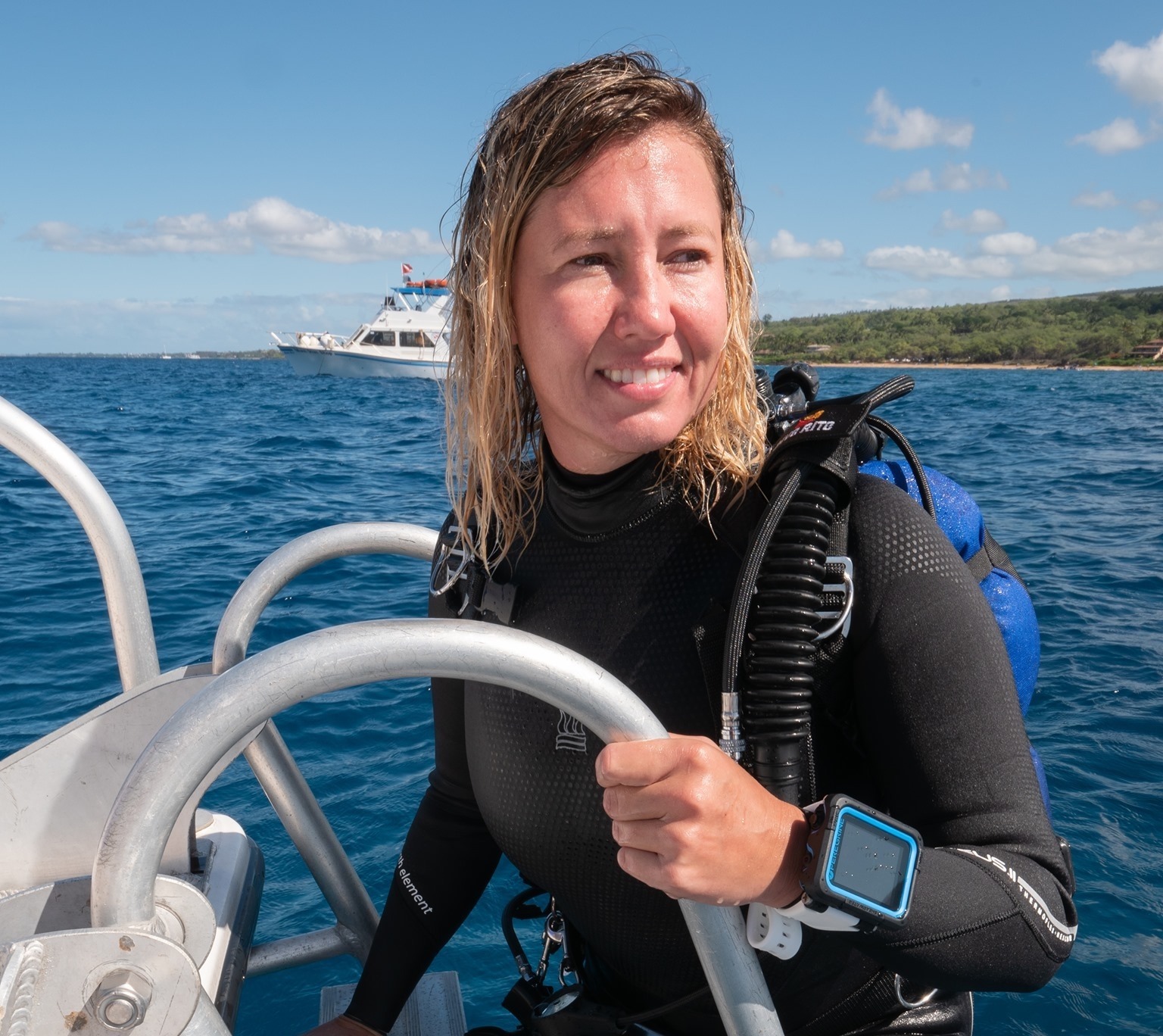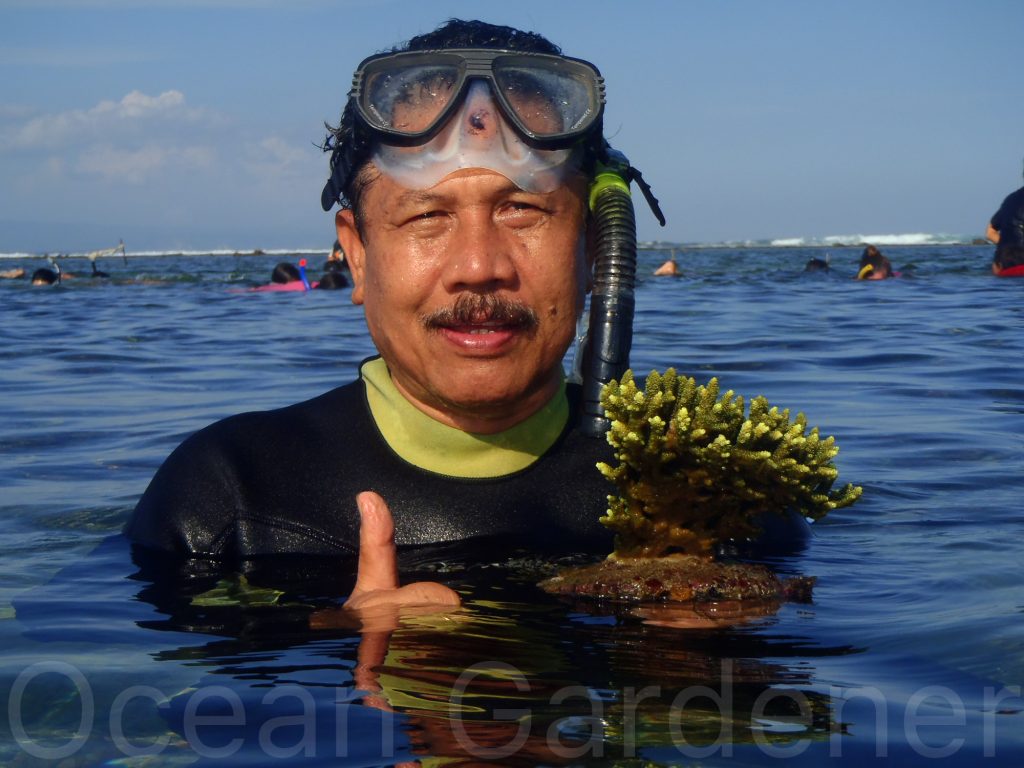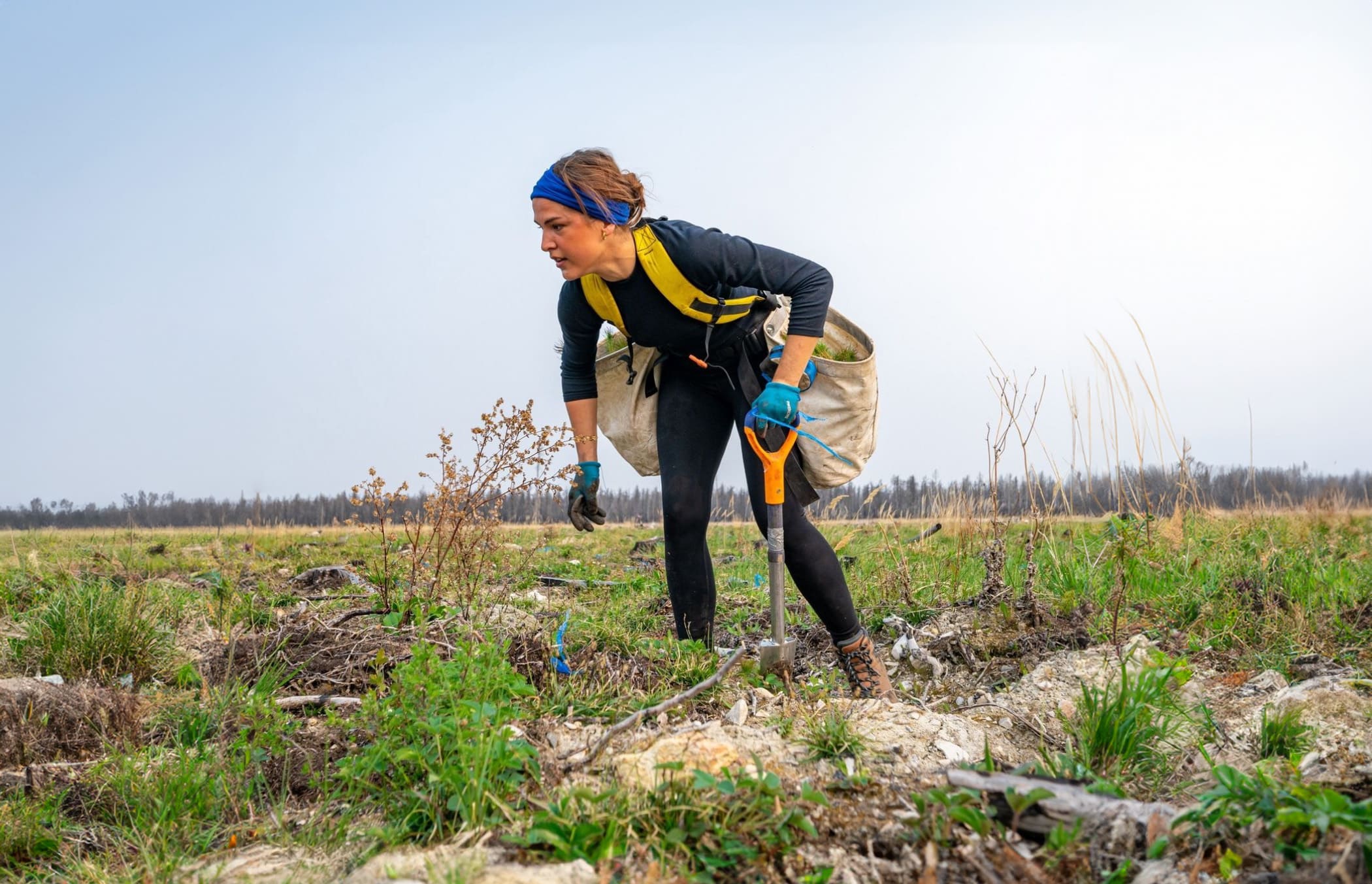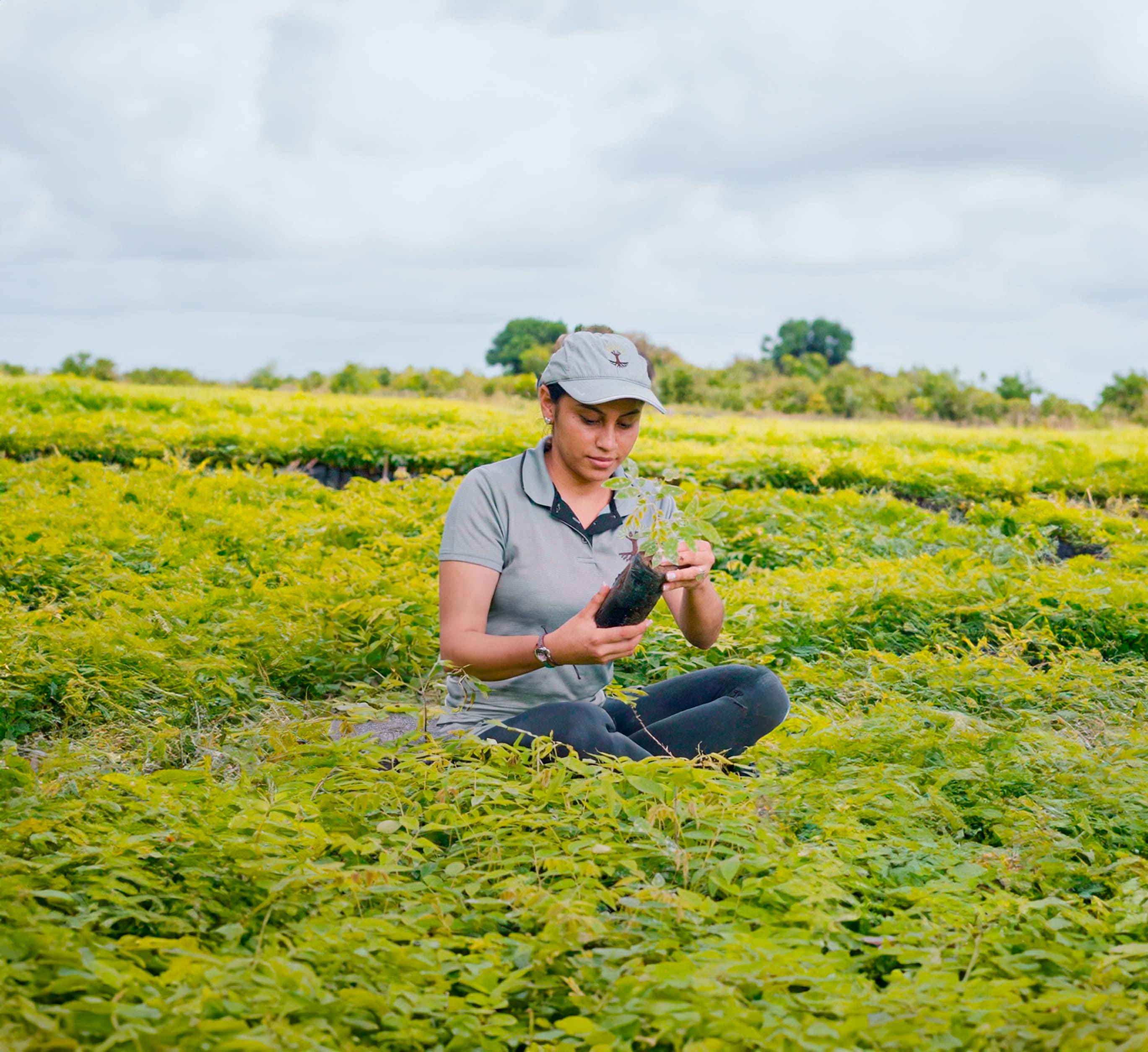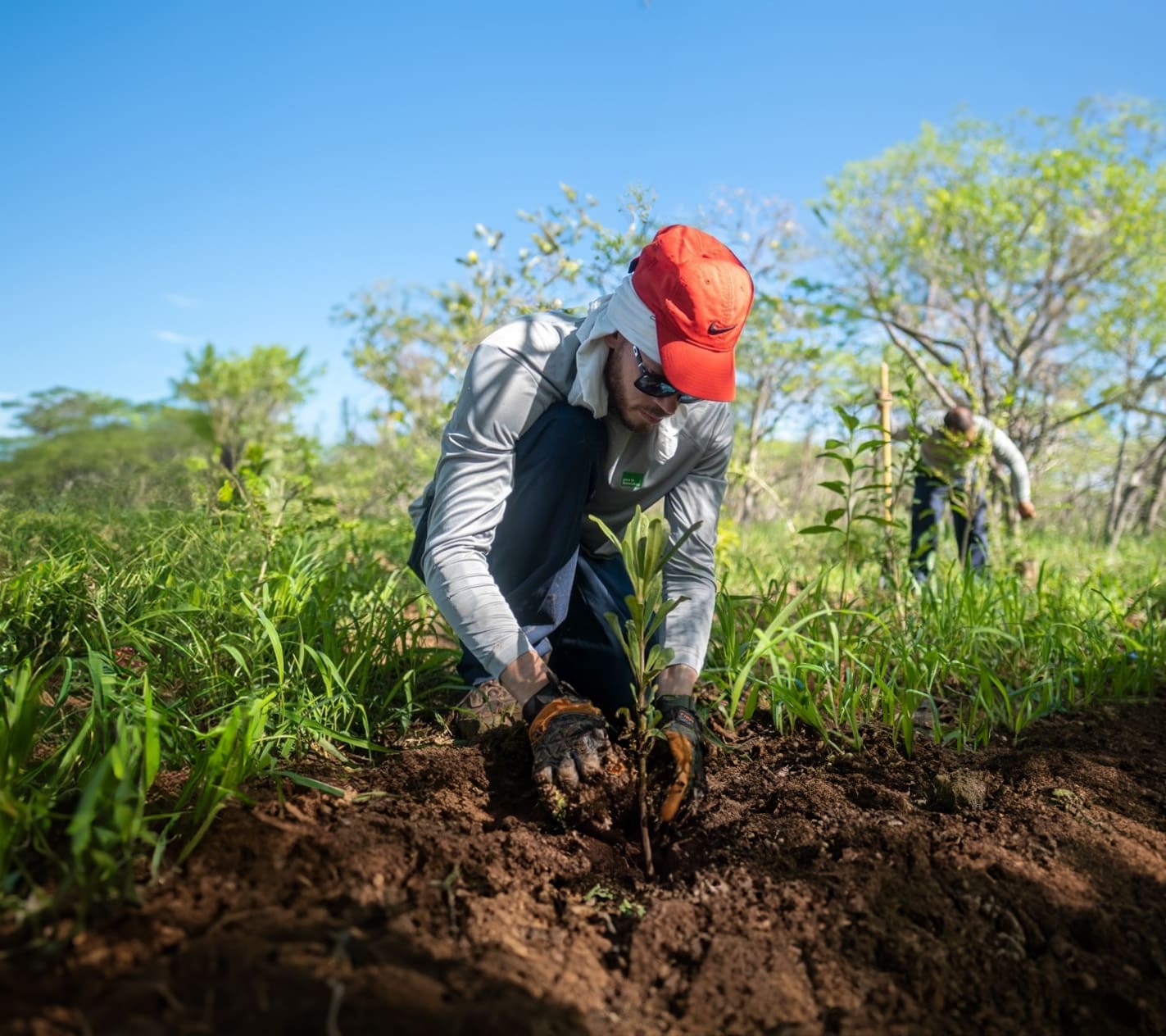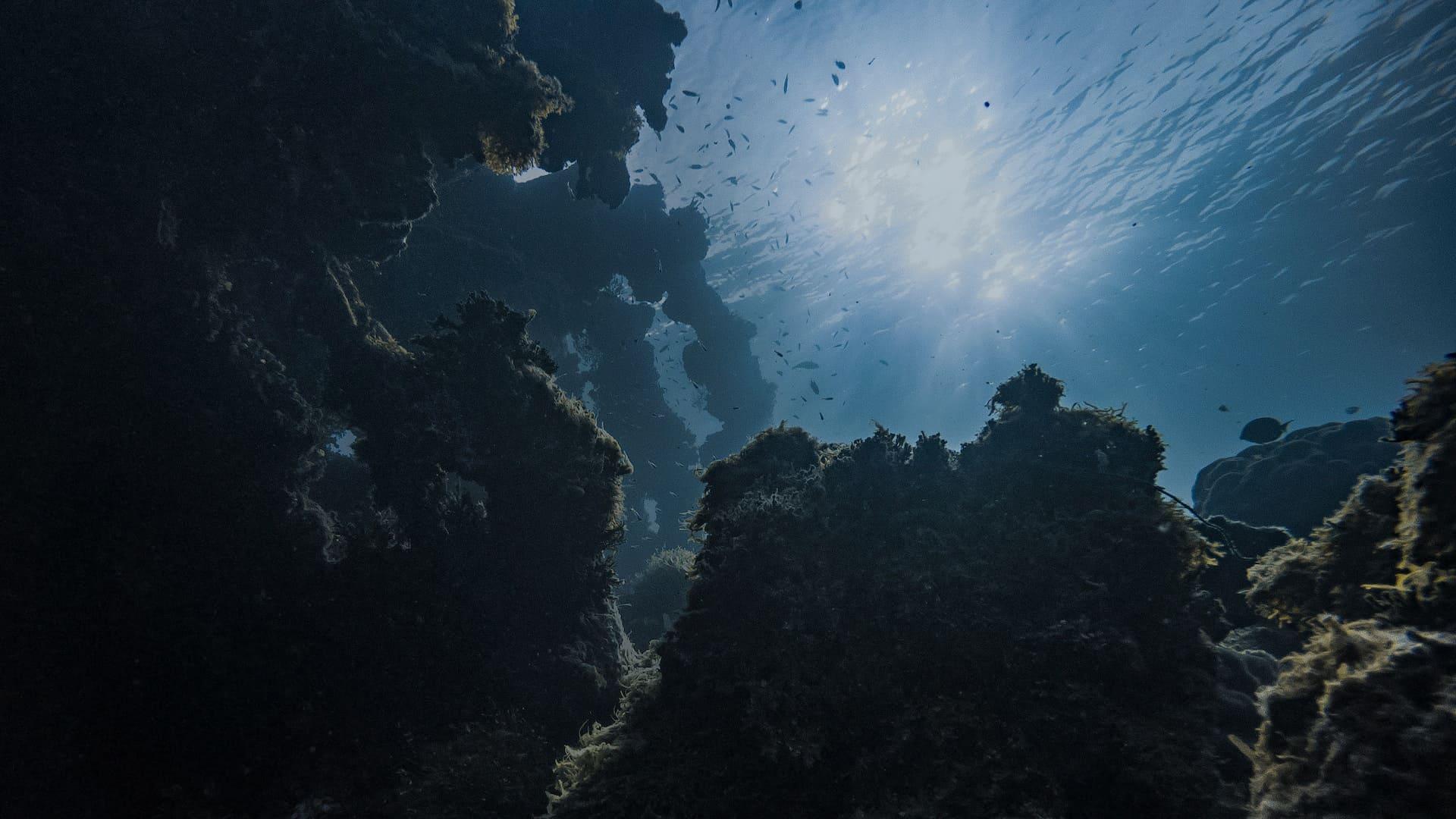
Growing 1 200 corals for reef restoration in Bali (demo)
- Organization: Ocean Gardener
- Category: Environment
- Location: Indonesia, Bali
- Duration: 60 days
The project is temporarily inactive and is posted for demonstration purposes. Please select another project.
Coral reef ecosystems
Coral reefs are some of the most diverse ecosystems in the world. Coral polyps, the animals primarily responsible for building reefs, can take many forms: large reef building colonies, graceful flowing fans, and even small, solitary organisms.
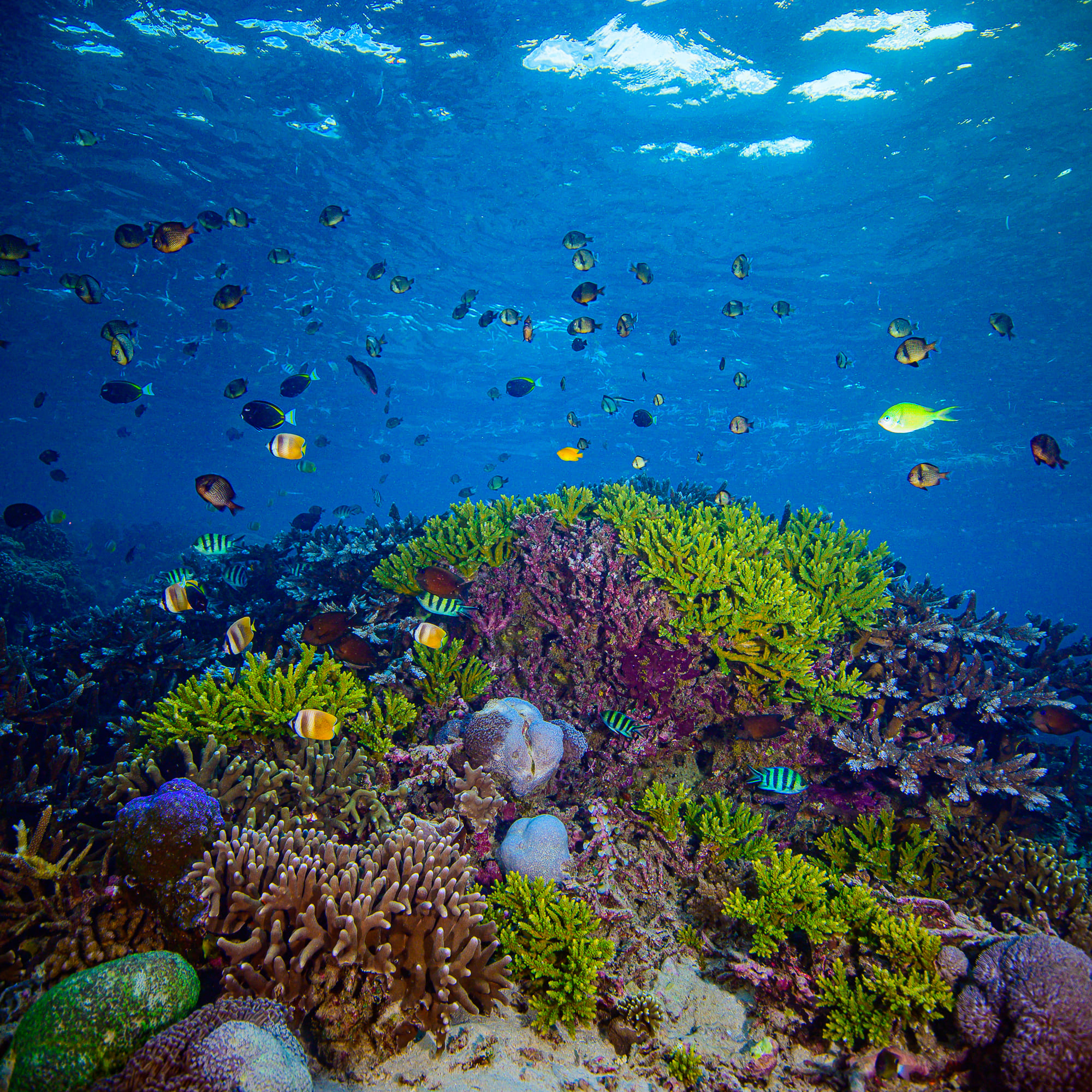
Thousands of species of corals have been discovered; some live in warm, shallow, tropical seas and others in the cold, dark depths of the ocean.
Diversity
Because of the diversity of life found in the habitats created by corals, reefs are often called the "rainforests of the sea." About 25% of the ocean's fish depend on healthy coral reefs. Fishes and other organisms shelter, find food, reproduce, and rear their young in the many nooks and crannies formed by corals.
Shallow water, reef-building corals have a symbiotic relationship with photosynthetic algae called zooxanthellae, which live in their tissues. The coral provides a protected environment and the compounds zooxanthellae need for photosynthesis. In return, the algae produce carbohydrates that the coral uses for food, as well as oxygen. The algae also help the coral remove waste. Since both partners benefit from association, this type of symbiosis is called mutualism.
Benefits of coral reef ecosystems
Coral reefs protect coastlines from storms and erosion, provide jobs for local communities, and offer opportunities for recreation. They are also are a source of food and new medicines. Over half a billion people depend on reefs for food, income, and protection. Fishing, diving, and snorkelling on and near reefs add hundreds of millions of dollars to local businesses. The net economic value of the world’s coral reefs is estimated to be nearly tens of billions of U.S. dollars per year.
These ecosystems are culturally important to indigenous people around the world.
Reefs in danger
But there is a problem... Unfortunately, coral reef ecosystems are severely threatened. Although some threats are natural, such as diseases, predators, and storms. Most threats are caused by people, including pollution (That create diseases), sedimentation, unsustainable fishing practices (That remove predators of predators), and climate change (That increases flooding and storm sizes), which is raising ocean temperatures and causing ocean acidification.
Many of these threats can stress corals, leading to coral bleaching and possible death, while others cause physical damage to these delicate ecosystems. During the 2014-2017 coral bleaching event, unusually warm waters (partially associated with a strong El Niño) affected 70% of coral reef ecosystems worldwide. Some areas were hit particularly hard, like the Great Barrier Reef in Australia, where hundreds of miles of coral were bleached.
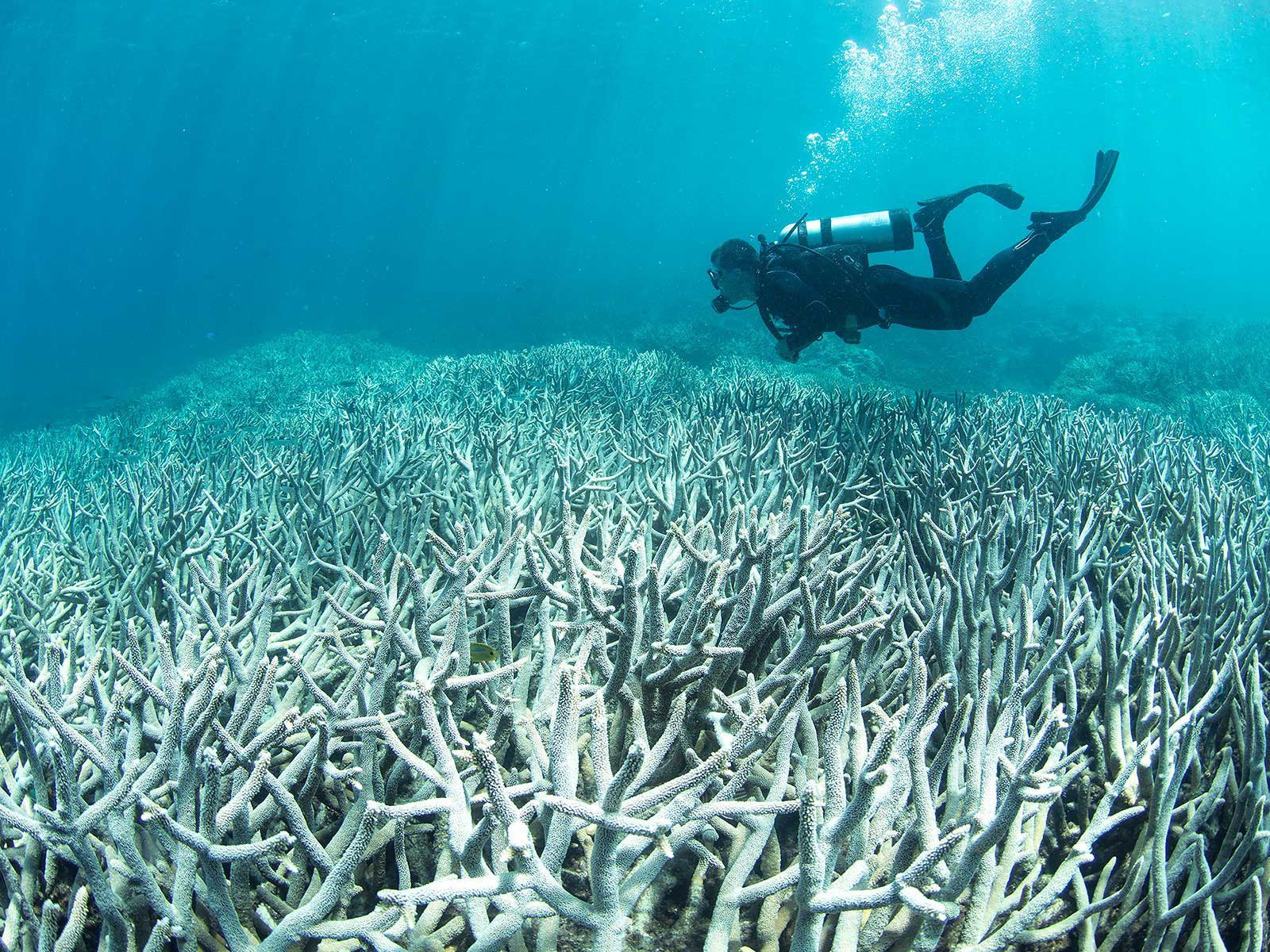
Corals are able to recover from bleaching events if conditions improve before they die, though it can take many years for the ecosystems to fully heal.
Coral reef restoration
Many some enthusiasts around the world seek to help reefs and preserve them by growing corals in special plantations and then returning them to the reefs. We pursue the same goal. The site we selected for reef restoration has been damaged by a large pontoon. Large concrete blocks were pulled over long distance during bad weather. Ropes and chains flatten large sections of corals during large swell at low tides.
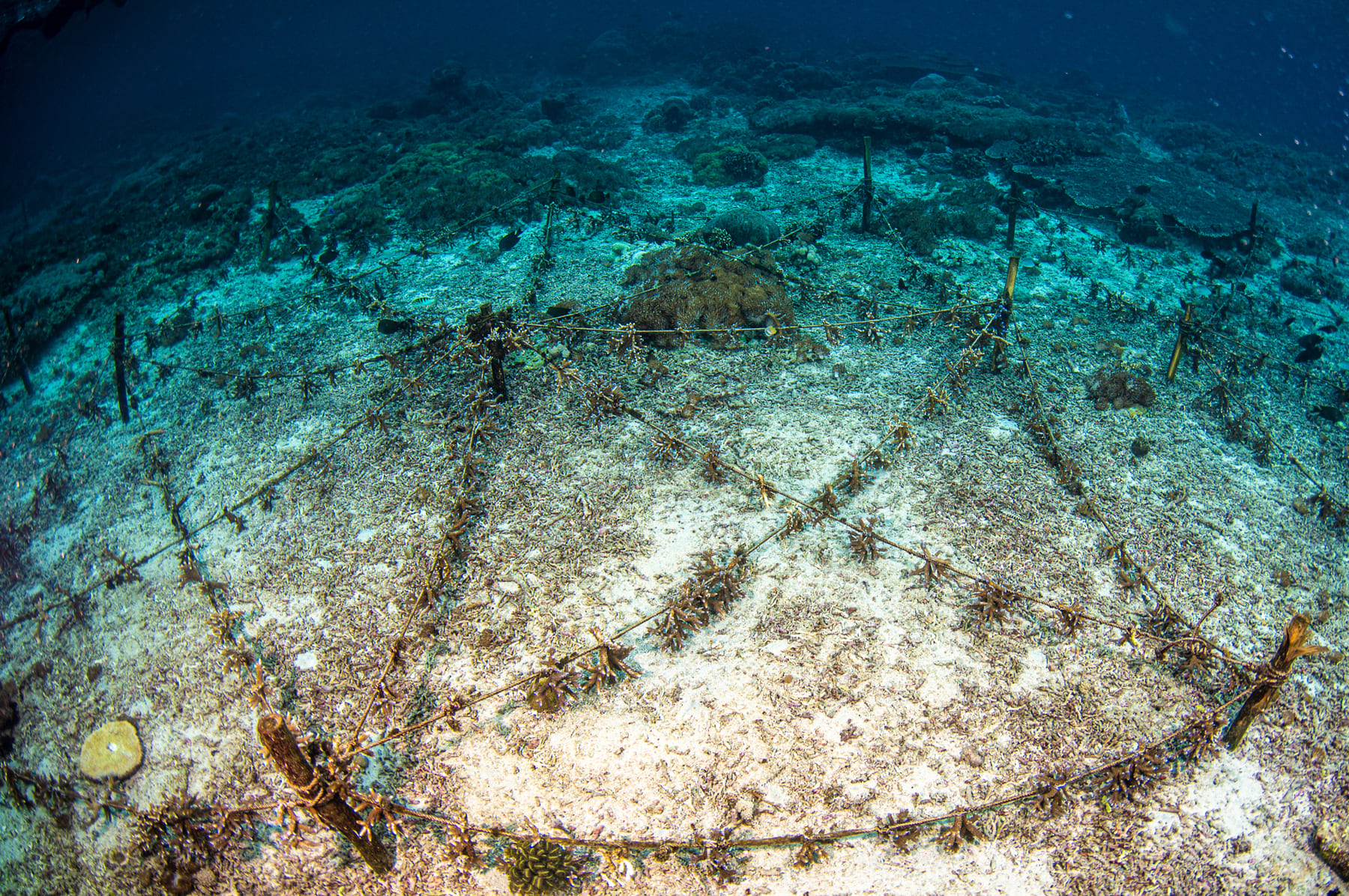
We work with a community of 26 coral lover, all born and raised in this village. We offer many different training, and accompany them in the work process. A large nursery was set up over 5 years ago, and is being maintained in the lagoon, and new species are constantly added. This nursery in the shallowest part of the reef, is subjected to warmer temperature. So these corals adapt to future conditions, before being transplanted on the outer reef.
Coral growing technique
We decided to adapt the traditional technique used to grow seaweed. We also made it 100% organic. Only wooden sticks are used, obtained locally from a fast-growing tree whose wood does not rot in seawater, and 100% organic cotton ropes. No glue, no plastic, no petrol, no steal, no concrete.
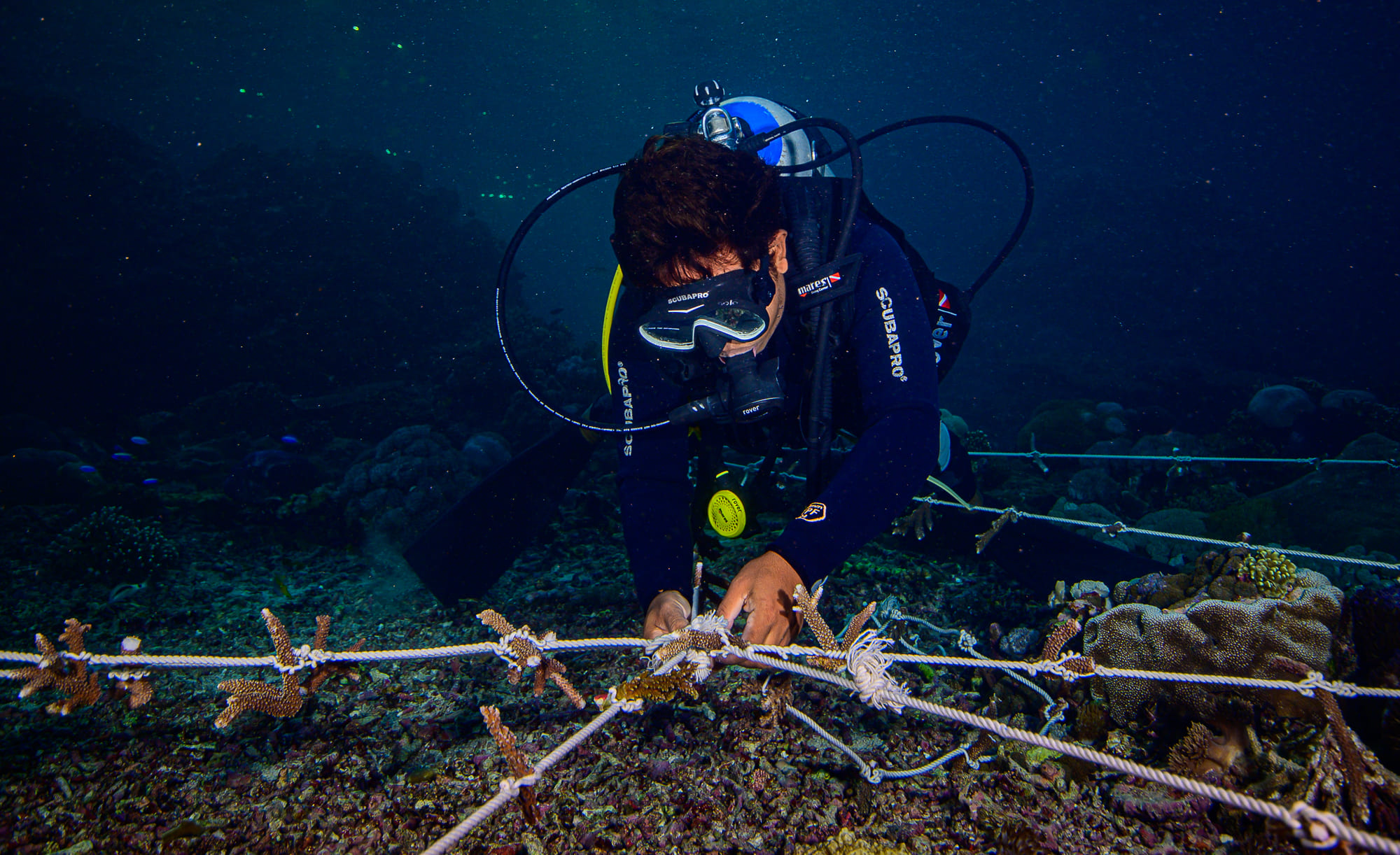
The procedure for growing coral is a bit like growing trees, but with a few differences. We collect coral fragments and bring them to our nursery, then attach them to organic ropes. The ropes with corals are then stretched underwater between wooden stakes.
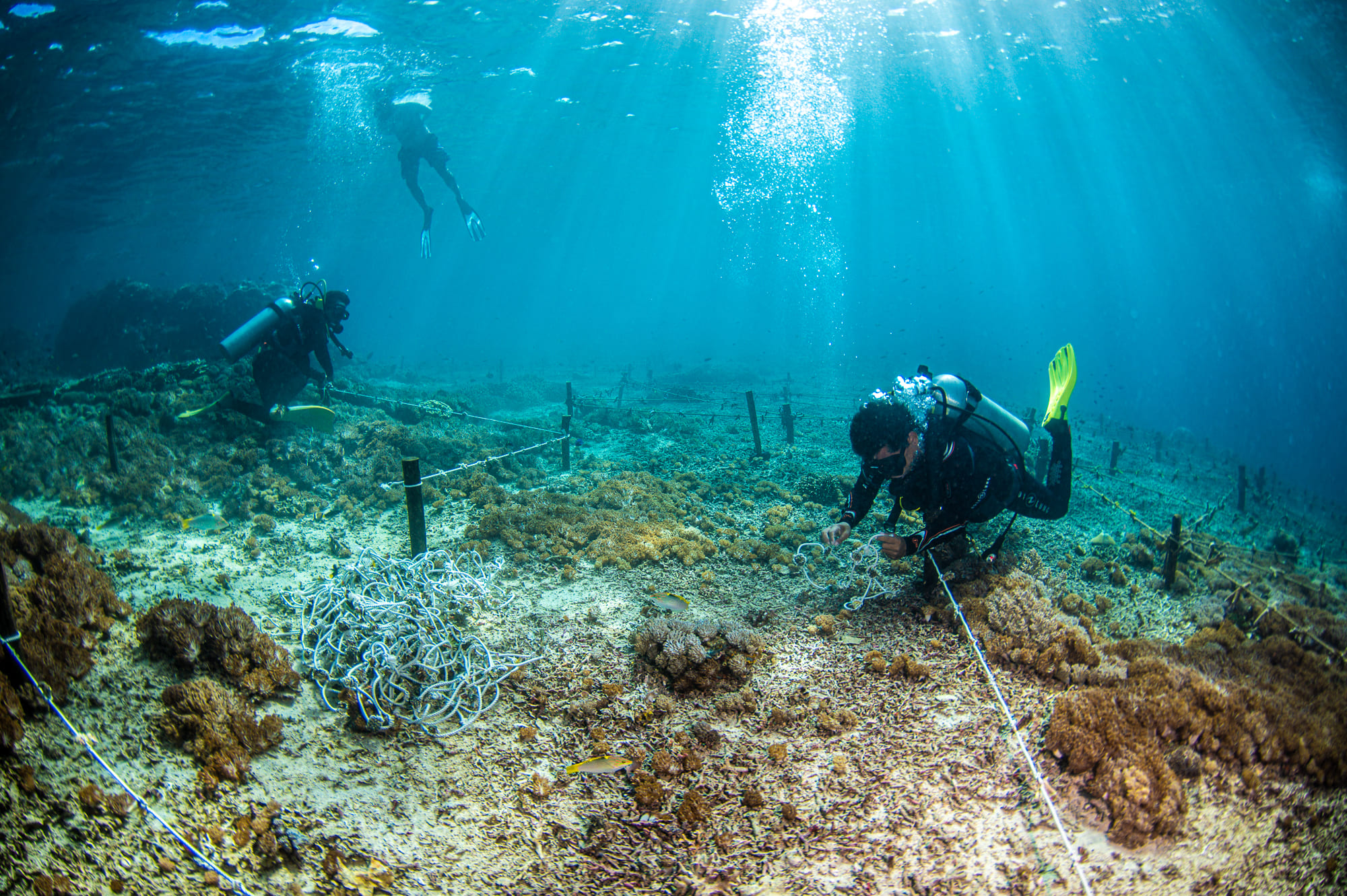
Corals grow to the correct size by getting anchored in the water column until they reach the bottom and become anchored to it. While the coral is growing, maintenance is very important, especially fighting off predators such as the Drupella snail and Crown of Thorn starfish. Coral care also includes replacing broken stakes, ropes torn by storms, dead coral fragments and so on. Coral maintenance is done twice a month.
Also during the year there is technical maintenance of the plantation, removal of parasites, algae, sponges, repairing broken sticks... Every 6 months 3D photogrammetric monitoring of the controlled area is carried out.
Through this project, we plan to grow 1,200 corals to contribute to global reef conservation and restoration of these wonderful ecosystems. Support our project and become part of our movement.
Team
Transactions
Philanthropists have not yet supported the project
Be the first and leave your mark in history
Be the first
and leave your mark in history
Budget
Documents
Project documents have not yet been added
Stay tuned for more updates
Related projects
Delete the article?
It will be impossible to cancel it
It will be impossible to cancel it
